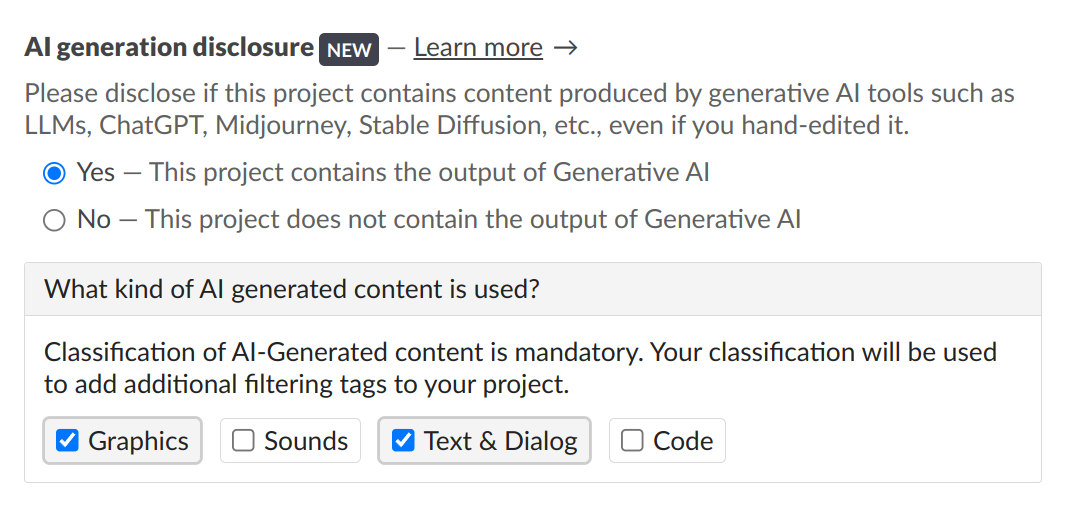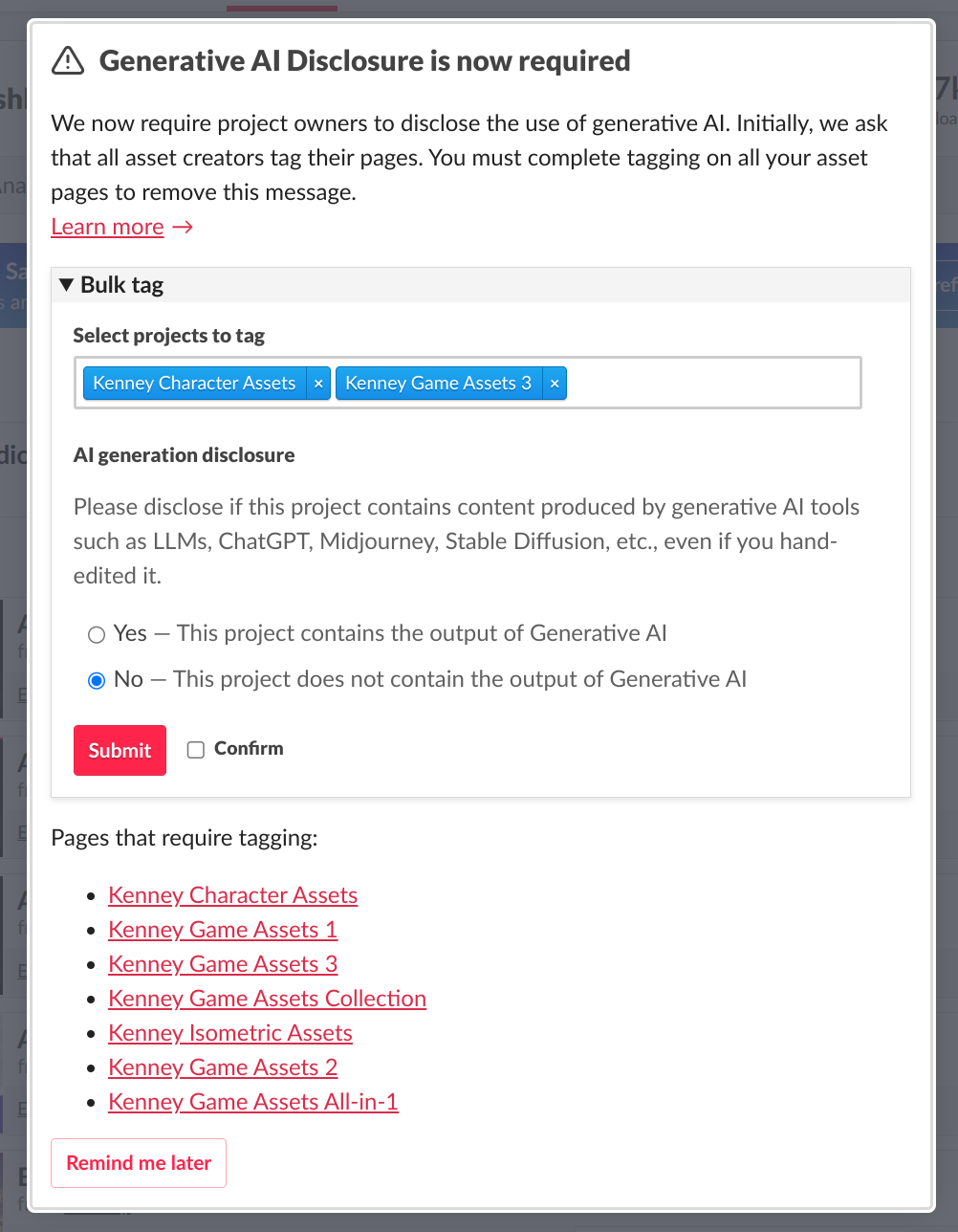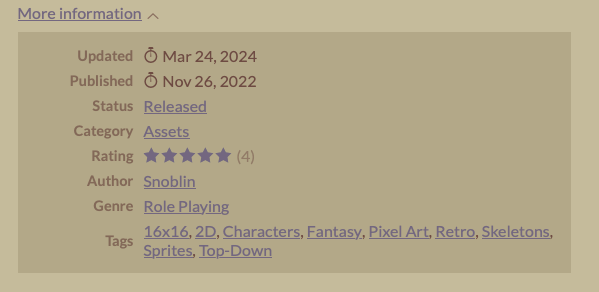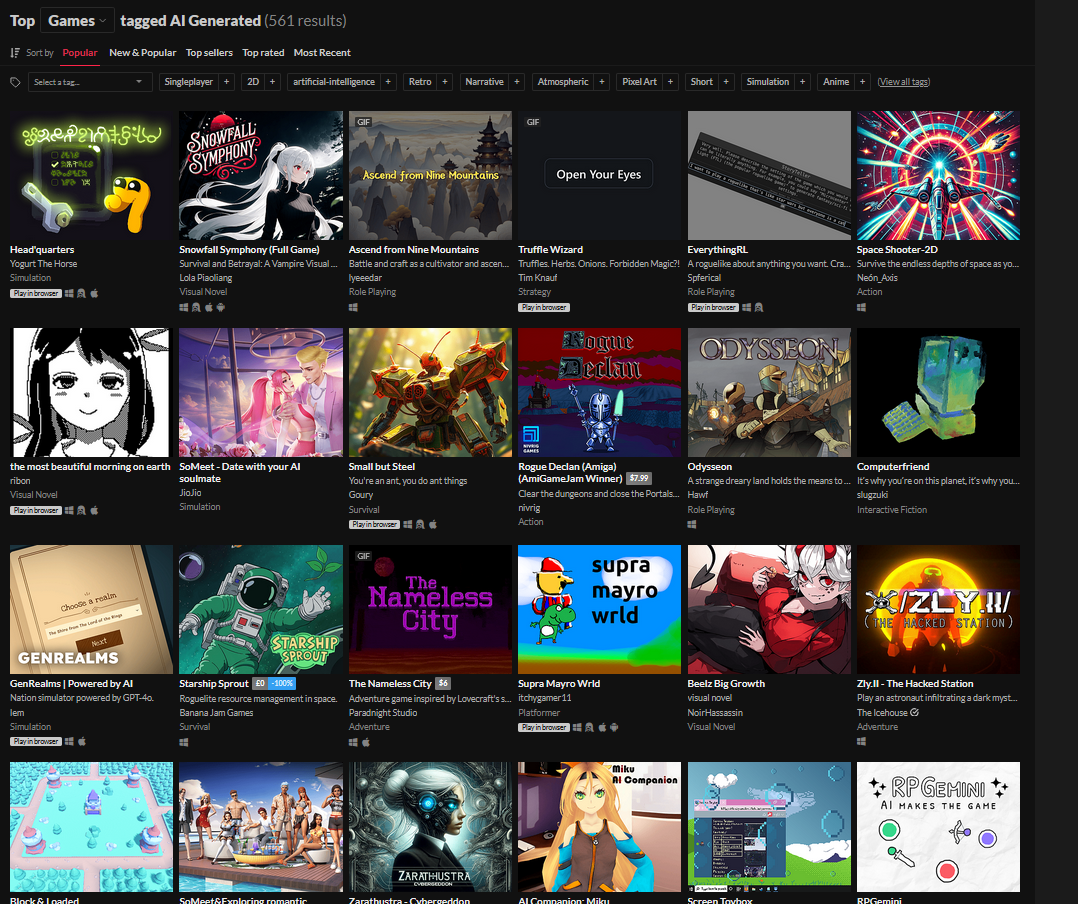We’ve deployed a new field to project edit pages called “Generative AI disclosure.” This field asks if your project contains the results of generative AI. If you select yes, then we also ask what kinds of generative AI you utilize, including Graphics, Sound, Text & Dialog, and Code.

If you select “yes,” then your page will automatically receive the AI Generated tag.
Additionally, the following sub-tags are used for the content types:
For projects that select “no,” they will receive the tag No AI.
Note: It’s not necessary to use these “automatic” tags manually when classifying your page. We may rename or modify them to fit future classification needs, so please correctly fill out the disclosure form instead of manually tagging.
Required for Asset Creators
This field is now required for all asset creators on itch.io. If you have a public asset page on itch.io and you view your dashboard, you will now see a blocking dialog instructing you to classify your pages.
Screenshot...

Because we understand that some asset creators can have a large quantity of pages, we’ve included a bulk tagging tool to simplify the process of tagging assets.
Assets comprised of generative AI (even if modified afterwards) that are not tagged will no longer be eligible for indexing on our browse pages. You can review our quality guidelines here: https://itch.io/docs/creators/quality-guidelines#ai-disclosure
We’ll have a grace period for people to update their pages, then we’ll likely use user reports to handle pages that have not been addressed.




